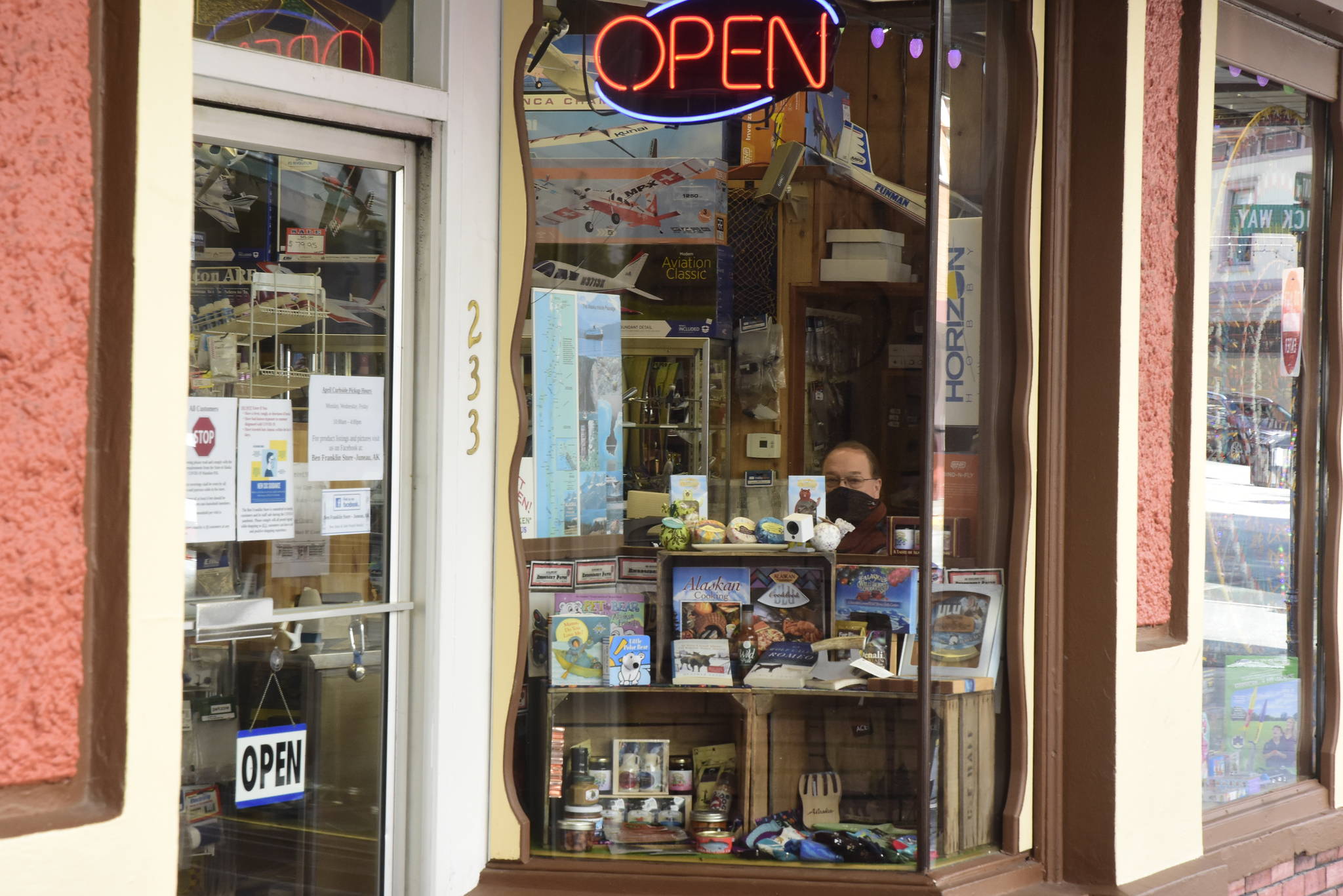While some may argue that there are offsetting considerations, the new world of the coronavirus means that the Juneau economy is likely about to take it in the teeth.
“The giant majority tied to the tourism industry that won’t happen this year is going to have a negative impact on the downtown industry,” said Wade Bryson, City and Borough of Juneau Assembly member and owner of the Subway restaurants in town. “Downtown has already been experiencing loss of state jobs.”
The city is doing what it can to hedge against future need and current circumstances.
“It’s interesting because lots of issues that are typical are exacerbated by the pandemic. Child care is a good example,” said Jeff Rogers, City and Borough of Juneau’s finance director, in a phone interview. “The Assembly will continue to think about what it can to stabilize the business environment.”
Making changes
While restrictions on local businesses have been eased off with the state’s health mandates, said Juneau Economic Development Council director Brian Holst in a phone interview, things are still far from returned to normal.
“It also reflects people’s attitude, what’s in store for when the economy comes back up,” Holst said. “How do we get restarted? That’s a great question. I am incredibly encouraged by our ability to stay healthy. Businesses are taking precautions. We can run businesses with our masks on. Retailers and shops are opening, slowly, and that’s a good sign.”
Holst named a number of industries that are particularly suffering from the virus.
“Cleaning services are down because people are cleaning their houses less. People are seeing these small companies that provide these services are impacted. Advertising is down. Businesses are conserving their cash,” Holst said. “We’ve talked to one church, and they said that giving is down because they don’t congregate. Part of the economics of churches is they get their donations on weekends. The churches in Juneau are big supporters of our social services. To the degree they don’t have their regular sources of support? That’s a knock-on effect.”
Holst also mentioned many industries that typically rely on seasonal workers to fill their ranks that Juneau residents might be able to find employment during the lean times.
“I think we’re concerned about the fishing industry. We have two processors in town, both of whom have solid local workforces. Our processors have some of the highest percentages of local workforce from the outside,” Holst said. “There’s a potential for locals to look for opportunities there at the processing plants. I know the processing plants are trying to figure out how to do high volumes in a socially distanced way. In the summer months, that’s a challenge. How do you get the workers? And how do you operate in a way that keeps the workers and everyone safe?”
It’s not the only area that people might be able to find work in, Holst said.
“Construction is an area that might hold up potentially fine this year, subject to people’s ability to pay,” Holst said.”They’ve been identified as a critical industry, and safety is a critical part of the industry already. I think there’s also potential for locals there.”
It could get worse
“As the state industry has gone down since 2013 or 2014, tourism has been the only thing that kept Juneau’s local municipal economy flush. It just kept going,” Bryson said. “We’re going to go backwards in time in terms of tourism levels. That’s one of my concerns. What is going to be the fallout on that?”
The truncation or loss of Juneau’s tourism season is likely to have serious repercussions for the city, particularly the downtown. Bryson doesn’t think the worst of the storm will hit Juneau until the years to come.
“Next year, when the state has no money to give, that’s when things will get ugly,” Bryson said. “I always wondered what would make the PFD go away. This might do it.”
Another concern Bryson raised is that the depressed oil market will deeply affect the economy of Alaska.
“I think Juneau’s pain will be felt next year because nobody can come to the rescue next year,” Bryson said.”Everyone’s taking a hit. Everyone has less money. People are buying less things. People are going out to eat less.”
Grab a lifeline
“There’s talk of a significant amount of those funds being put towards supporting business,” Holst said. “A Lot of that assistance could be in the form of grants that will see businesses through. It’s really incumbent on the business to seek out those resources.”
Holst said the coming time would be difficult, but that Juneau would abide.
“I think every private business owner knows there’s a certain amount of risk,” Holst said. “It’s gonna be really hard here in Juneau. Our summer is such an incredible place for entrepreneurship for businesses in our community. These programs are generally structured very well. That provides a long ramp up back for some businesses.”
• Contact reporter Michael S. Lockett at 757.621.1197 or mlockett@juneauempire.com.

